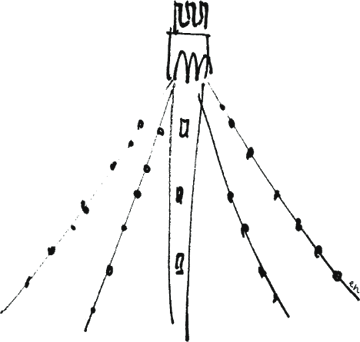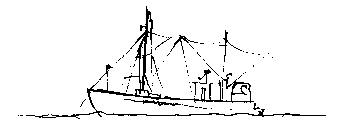 I am Provincetown.com ~ Ptown: An Extraordinary Place with Extraordinary People
I am Provincetown.com ~ Ptown: An Extraordinary Place with Extraordinary People
Provincetown Calendar of Events: What, When, Where ![]()
![]() A picture is worth a thousand words...
A picture is worth a thousand words...
|
Home | People | Provincetown Birthdays | Places | Favorites | Beaches | Events | Art | History | . . . . . . . . . . . . . . . . . . . . . . . . . . . . . . . . . . . . . . . . . . . . . . . . . . . . . . . . . . . . |
 |
When Mark Silva, ersatz chairman of The Great Provincetown Schooner Regatta, shrugged his shoulders and said, ‘on with the race,’ he chuckled only because he did not realize at that moment his inability to sail a boat of any size was of little consequence, considering his Portuguese heritage. And he certainly wasn’t thinking of the White Fleet’s connection to St. John, Newfoundland as he pondered, bemused, the unexpected turns of his considerable civic leadership.
The Portuguese were early visitors to the North American continent, crossing the Atlantic, jumping off from the Azores, to fish for six months on the undersea plateau of the Grand Banks, offshore of what is today Newfoundland, and known to the Europeans of the 16th and 17th centuries as “Tierra dos Bacallaos” (Portuguese for codfish).
The Portuguese who made the annual migration to the Grand Banks remained fishermen,
never becoming settlers, and even after the English and French colonized Newfoundland,
they continued to come as seasonal visitors, to fish the Grand Banks and nurture
the hospitality of the inhabitants of St. John’s, the principal Newfoundland
seaport. And always, over the course of 500 years, they would sail their schooners
home, holds full of salted fish, gold from the sea.
Even during World War II, they made their transatlantic trips, painting their
schooners white so the German U-boats would pass them over as harmless fishermen
(from a country ruled by a fascist dictator, Antonio Salazar.)
This tradition continued right down to 1973, the year of the last transatlantic
fishing trip of the Portuguese commercial fishing schooner, the Creoula.
Well into the 1950’s the Portuguese had stubbornly clung to the old ways,
sails and hand lines, when other nationalities were exploiting the abundance
of the Grand Banks with diesel powered trawlers. What seemed to persist, between
the Portuguese visitors and the indigent populations, was a die-hard mutual
respect. The respect the fishermen had from the Newfoundlanders, for coming
and not taking more than they needed, was earned onshore, but extended far
offshore, where the catch was taken in a laborious, inefficient way that unintentionally
guaranteed the preservation of the stocks for future generations.
With the depletion of the fishing stocks by mechanized fishing fleets, the
Portuguese sail voyages gradually ended and so did the annual tradition of
international cooperation at the lowest level.
Looking at the state of the Northeast marine fisheries today, one has to acknowledge
the ‘old ways,’ and wonder if it’s ever going to be possible
to get back some of that wisdom.
But one thing is for certain: we in Provincetown don’t have to ponder
why a nice guy like Mark would end up in charge of this Yankee boat race –
it’s in his national heritage. And in this town at least, even in this
age, it proves that nice guys can still finish first.
—Edward “Mick” Rudd
![]()
Pin it!
. . . . . . .

Mark Silva


If I can say "I am Provincetown" so can YOU :)
. . . . . . . . . . . . . .
© Since 2000. All rights reserved.